简体中文
繁體中文
English
Pусский
日本語
ภาษาไทย
Tiếng Việt
Bahasa Indonesia
Español
हिन्दी
Filippiiniläinen
Français
Deutsch
Português
Türkçe
한국어
العربية
Should You Beware of Forex Trading Gurus?
Abstract:Know the reality behind forex trading gurus, examining their deceptive tactics, inflated promises, and the risks associated with trusting them for financial advice.
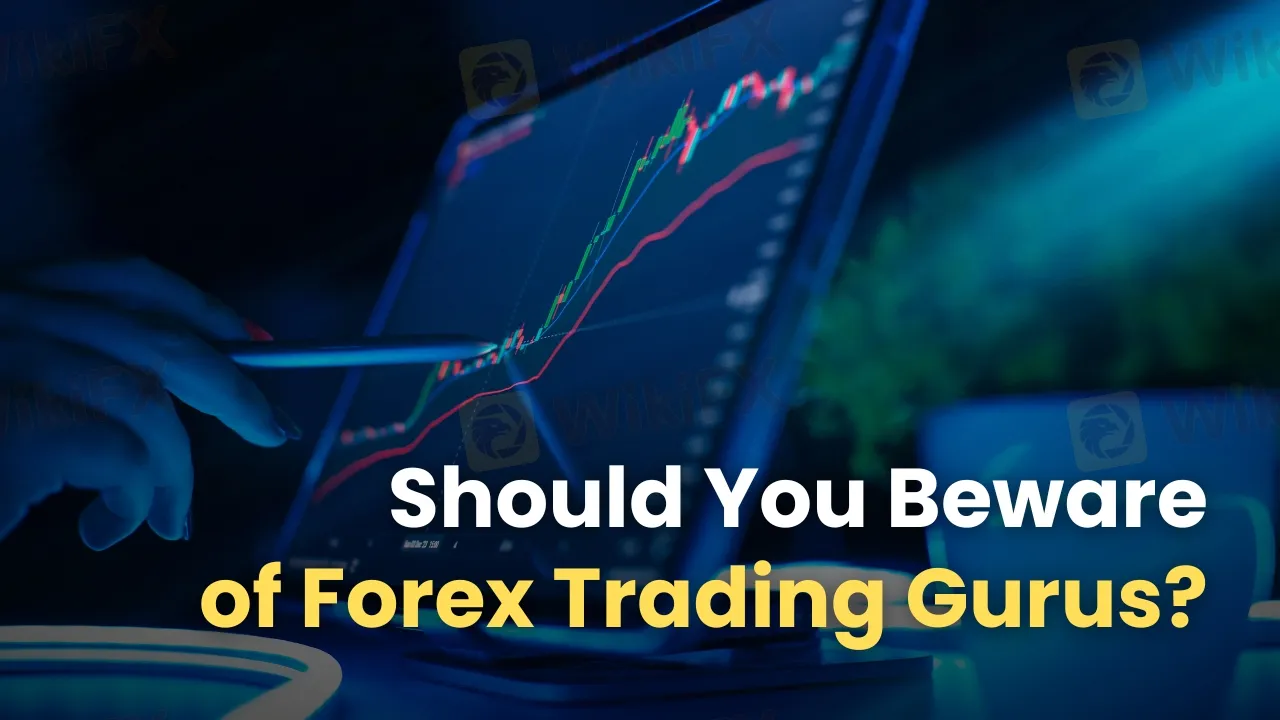
Forex trading sounds exciting—it‘s about turning a little money into a lot. That’s why people who call themselves “gurus” are popping up everywhere, saying they can make you rich. One guy, Alex Gonzalez, aka FX AlexG, is all over YouTube and social media. He says he turned $100 into $1 million in just a few months. The forex market, where people trade money and it‘s worth over $7.5 trillion a day, pulls in lots of dreamers. But it also makes people wonder: can you trust these gurus, or are they just tricking folks who don’t know better? Lets look closely at this, using FX AlexG as an example, to help everyone stay smart and safe.
The Guru Promise: Too Good to Be True?
These gurus act like they‘re here to save people who need cash. They show off fancy stuff—boats, fast cars, big houses—to prove they’re winners. FX AlexG brags about his “$100 to $1 Million Challenge.” He says he hit $88,000 in 27 days and got to $1 million in about two months. It looks amazing at first. But growing money that fast—almost a million times more—is crazy hard. Even super-smart money pros with big teams don‘t do that. Here’s the warning: if it seems way too perfect, its probably fake.
Forex trading is wild and tricky. Making huge money all the time takes big risks or cheating. Real traders focus on staying safe with their money, not chasing quick wins. But gurus like Alex skip that part and just talk big. His videos show him acting shocked at “perfect” guesses about prices like its a show, not real skill.
Tools of Deception: How Gurus Fake Success
To figure out if gurus are for real, we need to check how they work. FX AlexG uses something called TradingView. It has a trick called “market replay” that lets you go back and watch old price changes like they‘re happening now. Some say Alex uses this to pretend he’s guessing prices live when he already knows what happened. He never shows trades as they happen or papers from his broker—things honest traders do. Instead, he tells stories that sound good but arent true, a move lots of shady gurus use.
He might also use MetaTrader, which he could rent for $2,000 a month. With it, he can make up trades and make them look perfect. He messed up once on Instagram, showing he made $7,988 when he shouldve lost money because prices went the wrong way. That slip shows gurus care more about looking good than being real.
Then there‘s MyFXBook, a site to check trading numbers. Alex says he made 8,800% in 21 days and wins 70% of the time. But anyone can change those numbers. He also blocks people from copying his trades, which makes no sense if he’s legit. Real traders show proof you can trust; fakers hide it.

The Business of Misleading: Courses and Challenges
Gurus don‘t just fake trades—they sell stuff too. FX AlexG has a 30-day boot camp for $3,500 each, with 300 spots, and a “Set and Forget” plan for $1,560. He says you’ll have a “99% better shot” at making $1,000 to $1,500 a week, but that‘s just a wild guess. If all spots sell, he gets $1.05 million—the same as his challenge goal. He says spots are limited, but it’s probably a lie to grab more cash.
He also runs Rocket 21, a challenge company. You pay to trade fake money, hoping to win real cash. But people on Trustpilot say they get cheated—like one guy made $934 but got only $59 because of weird rules. Rocket 21 keeps most of the money. Good reviews about their help desk hide the real problem—its a trap, a trick gurus love.
The Fine Print: Legal Loopholes and Disclaimers
Here‘s a big clue: Alex’s videos mention a rule, CFTC Rule 4.41. It says his results might be pretend, not real trades. Honest traders use pretend stuff to teach, but Alex acts like it‘s all real without saying it’s fake. This rule keeps him safe from trouble while fooling people who don‘t read the small words. It’s sneaky, not a mistake.
His numbers don‘t add up either. He hints at making 800 trades with big wins or losses using tons of borrowed money. Math says most people lose doing that—only one in a thousand might not. He’d be super rare to win, but hes got no real proof.
The Bigger Picture: Why Gurus Thrive
Forex tricks have been around forever. The market‘s huge and not watched closely—groups like the NFA try, but it’s not enough. People selling tips, robots, or fake plans have hurt traders for years. Gurus like Alex jump on this, aiming at newbies with big promises. Social media makes them loud, covering up the warnings with happy tales.
Numbers show the truth: 70-80% of regular forex traders lose money, studies say. Gurus don‘t talk about that or how long it takes to get good. If they’re so great, why sell lessons instead of trading? Easy: selling is better money and less risky.
Public Awareness: How to Spot the Scam
Are gurus real or scams? Most, like FX AlexG, look like scams. Heres how to stay safe:
- Ask for Proof: Good traders show trades live and papers from brokers, not just pictures.
- Check Rules: Use brokers watched by groups like FCA, ASIC, or CFTC. Unknown ones are risky.
- Watch Big Promises: No one can promise money or no risk. Forex is always a gamble.
- Look at Reviews: Dont trust guru ads—check Trustpilot or forums for real stories.
- Read Everything: If they say “pretend” results but act real, its a trick.
Conclusion: Trust Learning, Not Gurus
FX AlexG‘s story—fake trades, pricey lessons, and sketchy challenges—shows a pattern. Forex gurus sell dreams, not real help, feeding off people’s hopes. Some good teachers, like Kathy Lien or pros with proof, are out there, but they‘re rare. Success takes learning, practice, and care—not guru talk. In 2025, with scams growing, knowing the truth is your shield. Next time you see a guru video, ask: where’s the proof? Your moneys on the line.

Disclaimer:
The views in this article only represent the author's personal views, and do not constitute investment advice on this platform. This platform does not guarantee the accuracy, completeness and timeliness of the information in the article, and will not be liable for any loss caused by the use of or reliance on the information in the article.
Read more
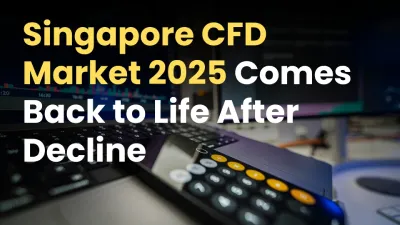
Singapore CFD Market 2025 Comes Back to Life After Decline
Singapore's leverage trading market 2025 rebounds as CFD and forex traders embrace AI adoption in trading Singapore.
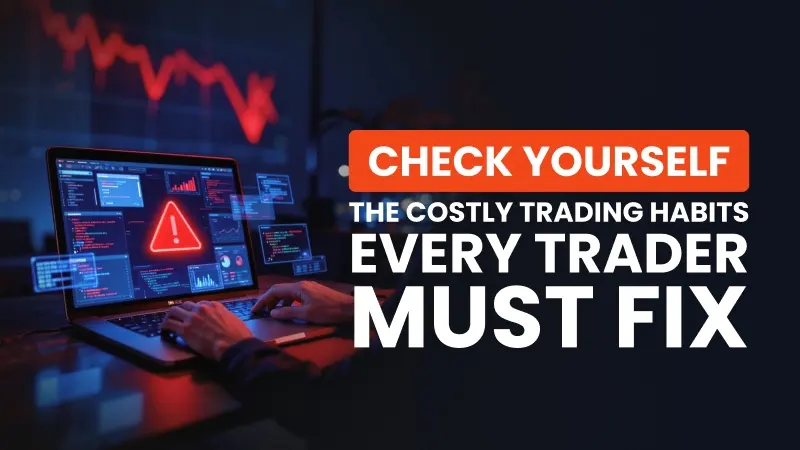
Check Yourself: The Costly Trading Habits Every Trader Must Fix
Are the trading habits you barely notice the very ones quietly destroying your profits, and could a single overlooked mistake be costing you far more than you realise?
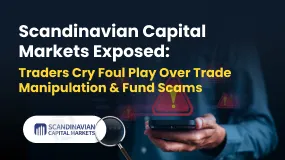
Scandinavian Capital Markets Exposed: Traders Cry Foul Play Over Trade Manipulation & Fund Scams
Does Scandinavian Capital Markets stipulate heavy margin requirements to keep you out of positions? Have you been deceived by their price manipulation tactic? Have you lost all your investments as the broker did not have risk management in place? Were you persuaded to bet on too risky and scam-ridden instruments by the broker officials? These are some burning issues traders face here. In this Scandinavian Capital Markets review guide, we have discussed these issues. Read on to explore them.
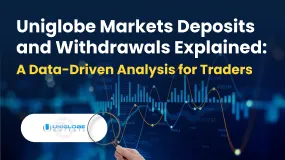
Uniglobe Markets Deposits and Withdrawals Explained: A Data-Driven Analysis for Traders
For any experienced trader, the integrity of a broker isn't just measured in pips and spreads; it's fundamentally defined by the reliability and transparency of its financial operations. The ability to deposit and, more importantly, withdraw capital seamlessly is the bedrock of trust between a trader and their brokerage. When this process is fraught with delays, ambiguity, or outright failure, it undermines the entire trading relationship. This in-depth analysis focuses on Uniglobe Markets, a broker that has been operational for 5-10 years and presents itself as a world-class trading partner. We will move beyond the marketing claims to scrutinize the realities of its funding mechanisms. By examining available data on Uniglobe Markets deposits and withdrawals, we aim to provide a clear, evidence-based picture for traders evaluating this broker for long-term engagement. Our investigation will be anchored primarily in verified records and user exposure reports to explain the Uniglobe Mar
WikiFX Broker
Latest News
Gratitude Beyond Borders: WikiFX Thank You This Thanksgiving
MH Markets Commission Fees and Spreads Analysis: A Data-Driven Breakdown for Traders
Alpha FX Allegations: Traders Claim Account Blocks, Withdrawal Denials and Security Breaches
How to Become a Profitable Forex Trader in Pakistan in 2025
CFTC Polymarket Approval Signals U.S. Relaunch 2025
Zipphy Exposed: No Valid Regulation, Risk Warning
KEY TO MARKETS Review: Are Traders Facing Withdrawal Delays, Deposit Issues & Trade Manipulation?
FCA Consumer Warning – FCA Warning List 2025
Australia’s Fraud-Intel Network Exposes $60M in Scams
Voices of the Golden Insight Award Jury | Kazuaki Takabatake, CCO of Titan FX
Currency Calculator



